Ever bruised yourself and wondered how? Knocked your funny bone and felt tears well up? Now, imagine the sharp, unwelcome, and unpleasant surprise of trapping your finger in a door jamb. It's a common yet often overlooked hazard.
Enter the world of door finger guards – inconspicuous but mighty protectors in the realm of everyday door safety.
Intrigued?
Let's explore how these unassuming items of door hardware are changing the game in residences, schools, and workplaces, making doorways safer for everyone.
In this Q&A, we'll answer the most frequently asked questions about door finger protectors, helping you understand their importance, functionality, and how they can contribute to a safer environment.
1. What Are Door Finger Guards?
They are safety devices designed to prevent fingers from being trapped or pinched in the vertical gap between the door leaf and frame on side hung or pivoting doors.
2. Why Are Finger Door Guards Necessary?
Finger-trapping accidents can be painful and lead to serious injuries such as amputation. Finger guards for doors are necessary to prevent these accidents and safeguard users. This is especially important in high-traffic areas and facilities like schools and nurseries.
3. How Do Door Finger Guards Work?
These guards work by covering the gap between the door and its frame, preventing fingers from getting caught. They are typically made of soft, flexible materials that cover the door jamb gap.

4. Are Door Finger Guards Required by Law in the UK?
While not required by law, certain safety standards and individual risk assessments recommend their use in public buildings frequented by vulnerable users, to enhance door safety measures. If you’re looking to reduce finger trapping in power-operated pedestrian doorsets, consult BS EN 16005, which supersedes BS 7036 parts 1-5.
5. What Types of Door Finger Guards Are Available?
There are several types of finger guards available, including standard guards for residential use, heavy-duty models for high-traffic areas, and roller-style guards that are less aesthetically obtrusive.
6. How Do You Install Door Finger Guards?
Installation is generally straightforward and can be done with basic tools. It involves attaching the guard to the door and frame, ensuring it covers the hazardous gap completely. They should be installed the full height of the door, usually with a 10mm gap top and bottom. The self-adhesive tape helps to position some models before they are screw-fixed to the door and frame.
7. Can Door Finger Guards Be Fitted to Any Door?
Most finger guards are designed to fit standard door sizes and types. However, it's important to check the specifications for compatibility with your specific door. Different fixings are available for timber and metal door applications.

8. How Do I Choose the Right Door Finger Guard?
Consider the door’s usage, location, and aesthetics. For high-traffic areas, a durable guard is essential, while for homes, a less intrusive colour-matched design might be preferable. Door finger guards are available in different types including models for hinge cavity and hinge knuckle side installation.
9. Are Door Finger Guards Safe and Durable?
Quality anti-finger traps are both safe and durable. They are made from materials that can withstand regular use and exposure without degrading. The flexible gasket material is often low maintenance, durable, and robust. By their very nature, they are safe for use by all occupants and users of any facility.
10. How Do I Maintain Door Finger Guards?
Maintenance usually involves regular cleaning and checking for any signs of wear or damage. As part of your regular maintenance routine, you may wish to check that all fixings are in place although many models have cover plates to conceal the screws. Most finger door guards can be easily wiped down and require no other regular maintenance.

11. Are There Finger Guards Suitable for Schools?
Yes, finger guards for doors in schools are very common. Medium to heavy duty door guards would be ideal for these high-traffic environments. Some models come with different colour carriers and gaskets to match existing door hardware.
12. What Should I Look for in a Quality Door Finger Guard?
Look for guards made from robust materials, compliant with safety standards, and offered by reputable manufacturers. British Standard “BS 8613 specifies requirements and test methods for durability, strength, and effective function of finger protection devices fitted at the hanging stile of pedestrian doors with the main purpose of preventing inadvertent injury.” So, check that the finger protection you choose has been tested to this standard.
13. How Cost-Effective Are Door Finger Guards?
In the long term, door finger guards are highly cost-effective. They prevent injuries, which can save on medical costs and potential legal issues. There are models available at a variety of price points, but it is worth considering lifetime value and investing in the right product for the right job.
14. Can Door Finger Guards Be Customised?
Some manufacturers offer customisation options in terms of size, color, and material, allowing you to match the guard to your specific needs and décor. Contact our sales team today if you need a taller or wider finger door guard or a different finish.

Thumb-thing for Your Facility
Door finger guards are a simple yet effective solution to a common safety hazard - uncovered door jambs. By choosing the right guard for your needs and ensuring proper installation and maintenance, you can significantly reduce the risk of finger-trapping accidents in your facility.
Ready to enhance the safety of your built environment? Explore our selection of high-quality door finger guards today and find the perfect match for your doors. Shop now and take a step towards a safer, more secure space.







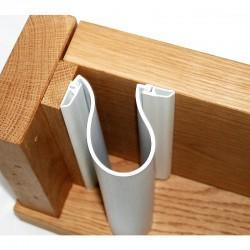
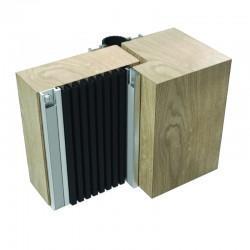
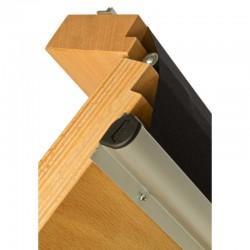
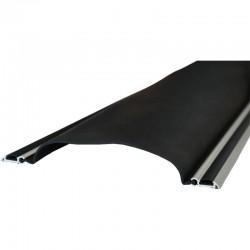
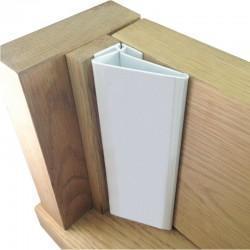




Comments